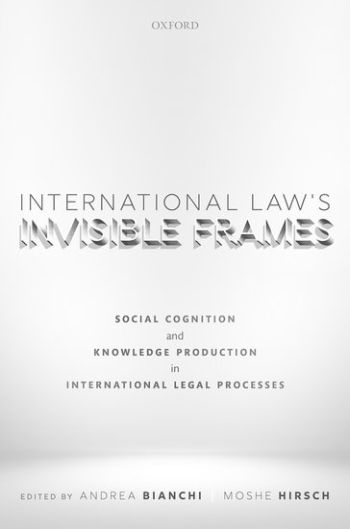
What is international law, and how does it work? This book argues that our answers to these fundamental questions are shaped by a variety of social cognition and knowledge production processes. These processes act as invisible frames, through which we understand international law. To better conceive the frames within which international law moves and performs, we must understand how psychological and socio-cultural factors affect decision-making in an international legal process. This includes identifying the groups of people and institutions that shape and alter the prevailing discourse in international law, and unearthing the hidden meaning of the various mythologies that populate and influence our normative world.
With chapters from leading experts in the discipline, employing insights from sociology, psychology, and behavioural science, this book investigates the mechanisms that allow us to apprehend and intellectually represent the social practice of international law. It unveils the hidden or unnoticed processes by which our understanding of international law is formed, and helps readers to unlearn some of the presuppositions that inform our largely unquestioned beliefs about international law.